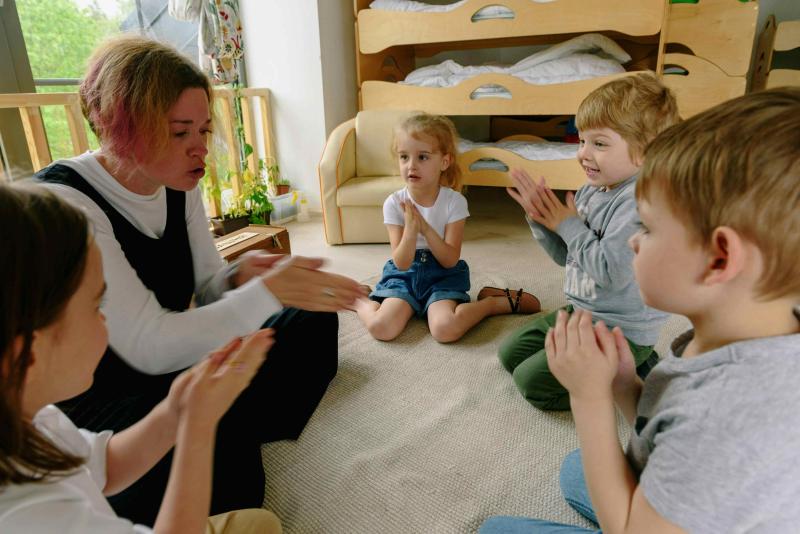What Makes Montessori Nursery Schools Unique? An In-Depth Look at the Montessori Method

Montessori nursery schools are renowned for their distinctive approach to early childhood education. Developed by Dr. Maria Montessori in the early 20th century, this educational method is based on the belief that children learn best in a supportive environment that fosters independence, curiosity, and creativity. Montessori schools emphasize hands-on learning, self-directed activity, and collaborative play, allowing children to explore at their own pace.
This article delves into what sets Montessori nursery schools apart from traditional early childhood education models. Whether you're exploring nurseries in Wembley or considering options elsewhere, understanding the unique aspects of the Montessori method can help you make an informed choice for your child's early education.
The Origins of the Montessori Method
The Montessori method was developed by Dr. Maria Montessori, an Italian physician and educator, in the early 1900s. Her approach was grounded in scientific observations of how children naturally learn and develop. Dr. Montessori believed that children possess an innate desire to explore, discover, and learn from their surroundings.
By creating an environment that respects and nurtures this curiosity, Montessori schools empower children to become active participants in their own learning journey. The method emphasizes self-discipline, concentration, and motivation, helping children develop independence and a love for learning from an early age.
Child-Centered Learning
One of the most distinctive features of Montessori nursery schools is their child-centered approach to education. Unlike traditional classrooms where the teacher leads the lessons, Montessori environments allow children to take charge of their learning.
In a Montessori classroom, children are free to choose activities that interest them and work on them at their own pace. This fosters independence, decision-making, and problem-solving skills. Teachers, known as "guides" or "directresses," observe and gently guide each child, providing individual support without interrupting the learning process.
This approach respects each child’s unique developmental timeline and learning style, ensuring a personalized educational experience that builds confidence and self-esteem.
Mixed-Age Classrooms
Montessori nursery schools typically have mixed-age classrooms, grouping children in three-year age spans, such as 3-6 years. This setup encourages peer learning, collaboration, and social development. Younger children learn by observing and interacting with older peers, while older children reinforce their knowledge by mentoring and assisting the younger ones.
This natural learning community fosters empathy, leadership, and communication skills. It also eliminates competition, as each child progresses at their own pace, focusing on their personal growth and achievements.
Hands-On Learning Materials
Montessori classrooms are equipped with specialized, hands-on learning materials designed to stimulate exploration and discovery. These materials are carefully crafted to enhance sensory perception, fine motor skills, and cognitive development.
For example, children use the Pink Tower to learn about size and spatial relationships, the Sandpaper Letters to develop phonetic awareness, and the Golden Beads to understand mathematical concepts. These materials are self-correcting, allowing children to identify and learn from their mistakes independently.
By engaging multiple senses, these interactive tools make abstract concepts concrete, laying a strong foundation for literacy, numeracy, and problem-solving skills.
The Prepared Environment
The Montessori method places great emphasis on the "prepared environment" — a carefully organized, child-friendly space designed to encourage exploration, movement, and independence. The classroom is divided into distinct learning areas, including Practical Life, Sensorial, Language, Mathematics, and Cultural Studies.
Furniture and shelves are child-sized to promote accessibility and autonomy. Children are free to move around, select activities, and work individually or in groups. This freedom within structure nurtures self-discipline, responsibility, and respect for others.
The prepared environment also includes outdoor spaces, promoting a connection with nature and physical well-being. Montessori schools recognize the importance of holistic development, balancing academic learning with social, emotional, and physical growth.
Role of the Montessori Teacher
In Montessori nursery schools, teachers play a unique and vital role. They are facilitators of learning, carefully observing each child to understand their needs, interests, and developmental progress.
Montessori teachers provide guidance and support while respecting the child’s autonomy. They introduce new activities when the child is ready, encouraging curiosity and intellectual growth. Their role is to create a nurturing environment where children feel safe, confident, and motivated to learn.
This individualized approach ensures that each child receives the attention and encouragement needed to reach their full potential.
Social and Emotional Development
Montessori nursery schools prioritize social and emotional development alongside academic learning. Through mixed-age interactions, collaborative activities, and freedom of choice, children learn essential social skills such as communication, empathy, and conflict resolution.
The emphasis on independence and self-discipline helps children develop emotional intelligence, resilience, and a positive sense of self. They learn to express their feelings, respect others, and navigate social dynamics with confidence and grace.
This balanced approach prepares children not only for academic success but also for life beyond the classroom.
Why Choose a Montessori Nursery School?
Montessori nursery schools offer a nurturing, stimulating, and inclusive learning environment that fosters the holistic development of young children. The emphasis on independence, creativity, and critical thinking prepares children for future academic challenges while nurturing a lifelong love for learning.
For parents exploring educational options like Montessori nursery Kingsbury, the Montessori method offers a unique and enriching early childhood experience. It respects each child's individuality and cultivates a sense of wonder, curiosity, and joy in learning.
Conclusion
Montessori nursery schools stand out for their child-centered approach, hands-on learning materials, mixed-age classrooms, and emphasis on independence and emotional growth. They offer a holistic educational experience that nurtures intellectual, social, emotional, and physical development.
If you're considering nurseries in Wembley or other locations, exploring the Montessori method could be a transformative choice for your child's early education journey. By fostering curiosity, creativity, and a love for learning, Montessori nursery schools provide a strong foundation for lifelong success.
Read More :- How Nursery Schools Promote Independence in Young Children

Comments